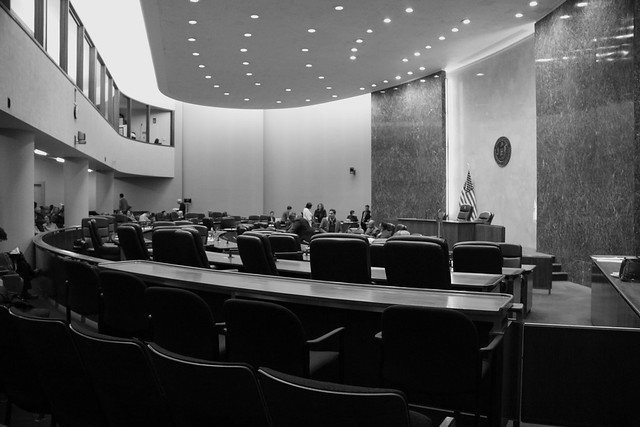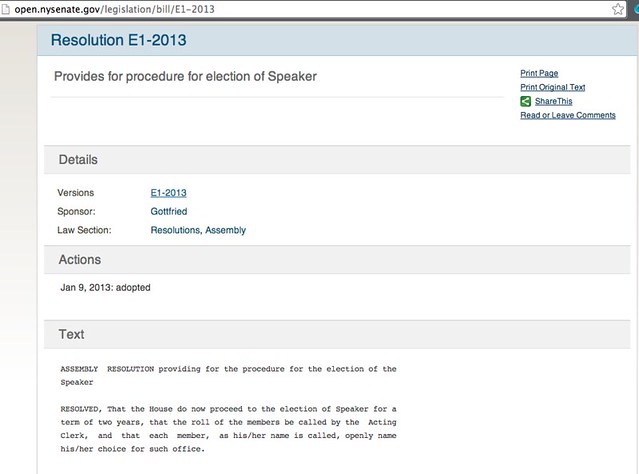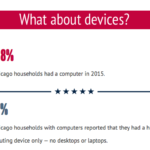During the OpenGov Hack Night on March 4th, the political lobbying group FWD.US presented on how they’re using digital tools to adovcate their goals to elected officials.
FWD.US joins a number of efforts in the civic innovation community to use technology to engage elected officials.

Here’s from FWD.US explaining their goals and how they’re using technology to acheive them.
FWD.US
FWD.US uses a variety of ways to helps users contact their elected officails and advocate for their positions including making a call, tweeting, facebook messaging, and mailing a physical letter to the elected official. FWD.US uses gamification to encourage users to take more effective answers. (For example, tweeting a representative earns just two points, while mailing a letter earns you thirty-six points.)
And it’s not just the technology at work here, FWD.US has a team of staff members who regularly check with Congress to see what their postions are and if they’ve changed. This information is then put on FWD.US’s website.
Like other apps of this nature, the goal is to provide information to residents about what issues and decisions that their elected officials are considering and to enable residents to give direct feedback on legislation to their elected officials.
It sounds like a simple task – but there is a vast amount of information to process. For starters, Illinois has 6,968 units of government. Not all of these bodies are legislative. Some, like the Metropolitan Water Reclamation District, handle more administrative functions but still make critical decisions that impact the daily lives of residents. Additionally, there are a massive amount of legislative actions taken at the local, state and federal level. In Chicago’s City Council alone, there were over 1,400 pieces of legislation in the last month.
To add to this challenge, many pieces of legislation are changes to previously passed laws. Without knowing the background on what the law already says, it can be difficult to understand what currently proposed legislation actually does.
There are a number of apps that have been developed to try to aid residents with these challenges.
About PopVox (Federal Level)
At the Federal level, apps like PopVox allow users to find and track legislation that’s making it’s way through Congress. The app then allows users to vote if they approve or disapprove of a particular bill. You can then send explain your reasoning in a message that will be sent to all of your elected officials. The app makes it easier for residents to send feedback on legislation by creating a user interface that cuts through the somewhat difficult process of keeping tabs on legislation.
On the elected officials side of things, PopVox provides a customized docket for congressional staff. This docket includes feedback PopVox has gathered on legislation including feedback from their constituents.
PopVox differs from petition sites because it only routes messages and feedback to user’s own elected officials instead of delivering a petition of everyone to a particular official. Since members of Congress are much more interested in the opinions of their own voters than just anyone, each message PopVox delivers becomes important.
OpenLegislation (State Level)
At the state level, New York’s OpenLegislation site allows users to search for state legislation and provide commentary on each resolution. The OpenLegislation site is open source and can be used by other states.

The site also provides calendar information and publishes the data in an RSS feed. In addition, the website provides transcripts of the legislatures activities.
While it doesn’t allow direct communications with legislatures, the wealth of information on the site makes it a vital resource for residents seeking to keep up with what’s going on in Albany.
Councilmatic and Granicus
At the local level, apps like Councilmatic allows users to post comments on city legislation – but these comments aren’t mailed or sent to alderman the same way PopVox does.
The site is built on top of the Granicus platform that used by the City of Chicago and over 185 other cities and agencies. The company has raised $10 million dollars in capital and is so prevalent that their data structure is the de facto standard for municipal legislative data. The Granicus platform allows legislative agencies to post legislative data easily as well as stream recordings of meetings.
Because Councilmatic is open source, it can be redeployed to any city that uses the Granicus platform. Originally built for Philadelphia, versions of Councilmatic are being worked on in Oakland, San Diego and many other cities
The drawback to apps like Councilmatic, is that the interaction only works if the alderman is also using Councilmatic to receive feedback.
Askthem.io (All Levels)
Askthem.io is a free and open-source platform for questions-and-answers with public figures similar to the White House’s “We The People” petition platform. While, the We the People site is just for the White House, Askthem works with every elected official nationwide and anyone with a verified Twitter account.
Askthem works by having the user enter their street address to determine who their elected officials are. Once registered, users can submit questions from their elected officials. When the question reaches its signature threshold, it is briefly reviewed by AskThem staff, and then delivered to the question’s recipient over email and social media, with a request to respond publicly on our non-profit platform.
Here’s a short demo of the platform given during the November OpenGov Chicago meeting.
The important part about these apps isn’t necessarily the technology behind them, but rather their ability to inform residents about the views of their elected officials and to enable communication between voters and elected officials.
If you have other apps that help engage with electeds, tell us about them here!






